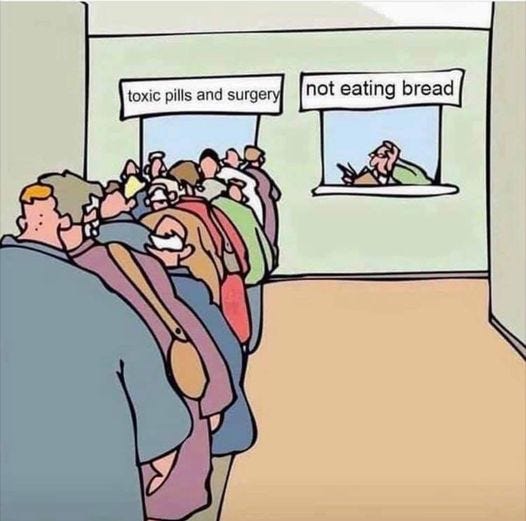Nine Supplements You Probably Don't Need
You can't package healthy eating, exercising, and sunshine into a pill, despite what the supplement industry says. But you may benefit from magnesium.
Hello Fasters! Today’s newsletter focuses on the feasting aspect of “fasting well and feasting well” and how there is no substitute for feasting well on nutritious food. This is a message you don’t often hear because no one benefits financially from you not buying supplements.
Many people treat vitamins and supplements as nutrition insurance without realizing that many synthetic vitamins that are removed from their food sources can do more harm than good.
For each category below, I am assuming you have not been prescribed the following supplements by a physician. Please follow your doctor’s advice if you have a known deficiency. I’m writing below to people who do not have deficiencies but are taking numerous supplements “just in case.”
One of life’s basic principles is that rules come with exceptions. In this case, magnesium is an exception to the general principle of avoiding most supplements. I make a case below for why nearly everyone can benefit from mag supplementation. It’s relatively inexpensive, especially if you cut out other unnecessary supplements.
1. Iron Supplement
Supplemental iron might be not only unnecessary but harmful. This is because the body achieves homeostasis by balancing three key minerals: iron, copper, and magnesium. The excess iron in breakfast cereals and commercial bread and flour is a holdover from old science that believed that because the human body requires some iron, then more and more must be even better. Another false assumption is that anemia is always caused by iron deficiency. Anemia is now known to be caused by vitamin B12 deficiency as well (see study here).
Unfortunately, it takes a long time for the commercial food industry to catch up with science. It’s currently trending about 50 years behind the research. The iron naturally occurring in foods such as red meat is easily assimilated whereas the supplemental iron obtained through pills or added to baked goods tends to oxidize or rust in the body leading to oxidative stress.
Because of iron added to foods, many people already have too much iron compared to copper and magnesium making an iron supplement harmful.
Doctor and researcher Morley Robbins says,
Dysregulated, unbound, excess iron is the greatest source of oxidative stress and inflammation in the body.1
2. Calcium Supplement
Numerous studies now show that excess calcium in supplement form doesn’t make your bones stronger and can lead to a build-up of calcium in the arteries. Calcium is best absorbed through food sources such as bone broth, dairy products, and leafy greens.
Keep in mind that calcium is only half the story when it comes to bone density. Our bones are made from about half protein, and many people have proved through DEXA scans that increasing protein intake increases bone density.
Furthermore, the increase in human growth hormone that accompanies fasting has been shown to increase bone density as well. This is why fasters often report wearing smaller clothing in proportion to their weight. As the bones become more dense, the scale may show a higher weight than expected.
Calcium is important for growth, development, and maintenance as we get older. But a supplement will not deliver the bioavailable calcium necessary. Drink milk, eat cheese, drink bone broth, and eat sardines with the little bones. Skip the pill.
3. Multi-vitamin
Keep reading with a 7-day free trial
Subscribe to Fast Well | Feast Well to keep reading this post and get 7 days of free access to the full post archives.


